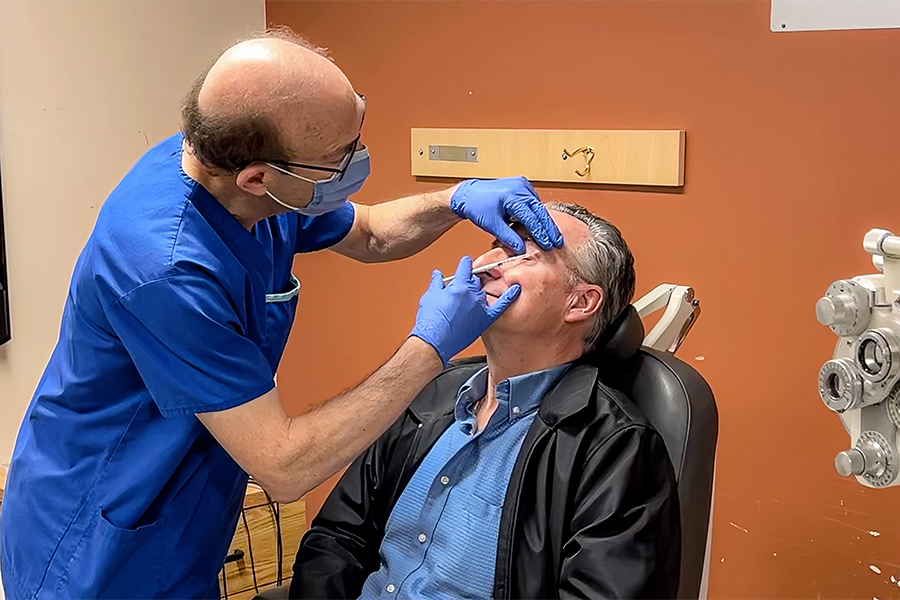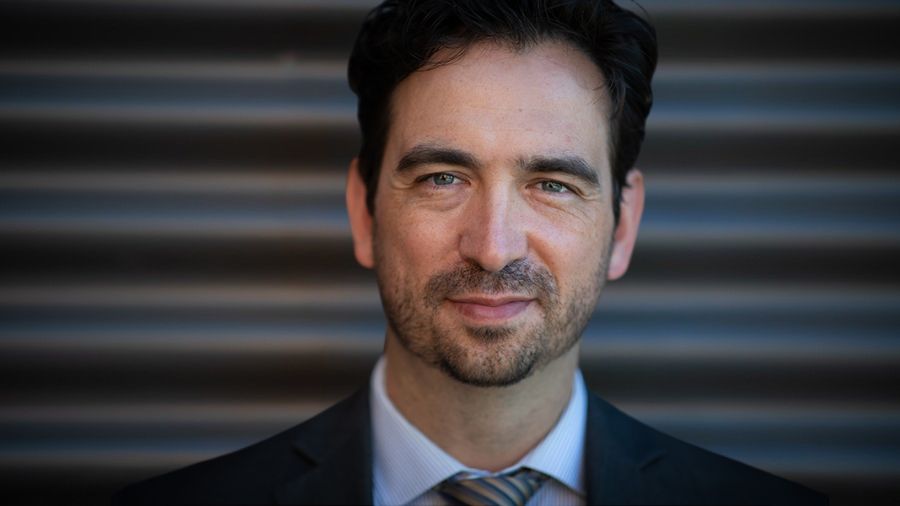Dr. Michael Brent says that a rigorous screening program could help prevent vision loss in vulnerable populations. Photo: Tim Fraser.
By Kira Vermond
Diabetic retinopathy is the leading cause of severe vision loss and blindness in working-age Canadians. Yet in Ontario, close to 40 per cent of people living with diabetes have not had their annual screening eye exam in two years, despite the fact that early intervention can prevent it.
Dr. Michael Brent, retinal specialist, Milton Harris Chair in Adult Macular Degeneration and principal investigator for Diabetes Action Canada’s retinopathy screening program with the Donald K. Johnson Eye Institute, is harnessing new technologies to get screening out into communities where diabetic retinopathy screening rates are low.
Mobile units visit inner city and remote Indigenous communities. People who choose to be screened have their vision and eye pressure checked, and a special digital camera is used to take images of their retinas. These images are uploaded to a secure server and Dr. Brent accesses the information remotely. He then grades the images for the level of eye disease and makes recommendations, which could range from scheduling their next eye screening exam, to an office visit, all the way to the need for surgery.
To date, almost 10 per cent of people screened through mobile units have required specialized retinal care, Dr. Brent says. “The program is definitely reaching the right demographic and helping to prevent vision loss in vulnerable communities,” he says.
The ultimate goal is to have a program in every province and territory, connected through a common database. “With a rigorous screening program, diabetic retinopathy could be removed from the top of the list of causes for severe vision loss and blindness.”
This article originally appeared in the magazine Vision: A look inside the Donald K. Johnson Eye Institute.


